81st Annual Program
The National Congress of American Indians (NCAI) is dedicated to advocating for Indian Country, striving to bring about meaningful change for all Tribal Nations and Indigenous Peoples. At the core of our mission is a steadfast commitment to defending tribal sovereignty and actively advocating for its protection— whether in Congress, the courts, or with the Administration. Thanks to the unwavering support of our partner organizations, tribal leaders, and allies, NCAI is making significant strides in its historic effort to safeguard and enhance the treaty and trust rights of Tribal Nations. Our primary goal remains clear: to ensure that Indian Country's priorities are reflected in both federal and international policy.
The portfolios of NCAI’s Policy and Legal teams encompass a wide range of critical areas, including federal appropriations and budget, community development and infrastructure, cultural protection, economic development and commerce, environmental sustainability, international affairs, land and natural resources, legal and governance issues, public safety and justice, education, and social and cultural resources. Below, you’ll find key updates on each of these vital areas:
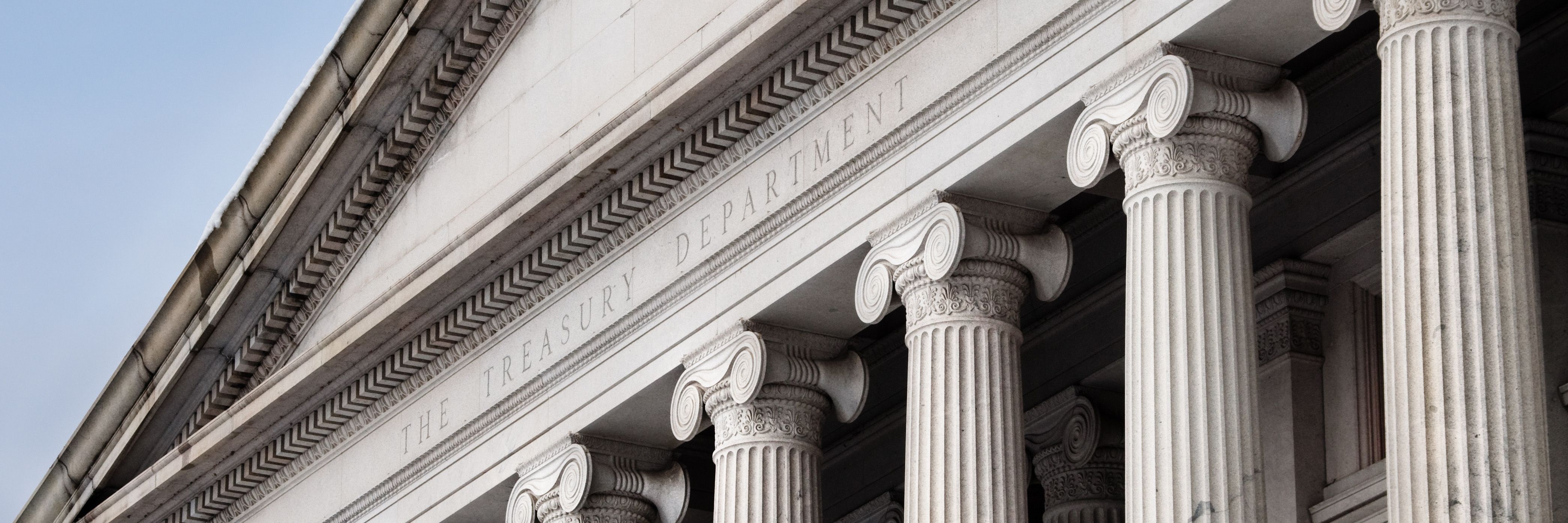
Appropriations and Budget Update
Tribal Nations have upheld their treaty obligations by keeping peace with the United States and its citizens and ceding millions of acres of land and resources that make the United States what it is today. The federal government has an obligation to support treaty and trust rights, protect tribal citizens, lands, and resources, and promote tribal self-governance. Providing full and timely funding necessary to carry out these objectives is critical to fulfilling the sacred treaty and trust obligations the United States owes to Tribal Nations.
The Biden Administration’s legislative agenda and the impact of the coronavirus pandemic brought about historic spending and revenue for Indian Country in Fiscal Years (FY) 2021-2023. In continuing his historic investments toward Indian Country, on December 6, 2023, President Biden signed Executive Order (EO) 14112: Reforming Federal Funding and Support for Tribal Nations To Better Embrace Our Trust Responsibilities and Promote the Next Era of Tribal Self-Determination. EO 14112 prioritizes Indian Country’s budgetary needs by reforming current federal budgetary policies to better align with self-governance and self-determination practices. The order also calls on the heads of each federal agency to measure its budget shortfalls and provide recommendations to address unmet budgetary needs for their respective budgets that serve Indian Country. For this EO to make the meaningful change that it promises, appropriate research and consultation must be undertaken, accompanied by substantial and adequate federal resources. The new Administration, with support from Congress, should work across federal departments and leverage the expertise of specialized federal staff to develop well-reasoned assumptions and defensible estimation methodologies around funding shortfalls. It must also enlist appropriate experts, such as actuaries and economists, to arrive at well-informed figures, in addition to existing tribal-federal efforts working to identify full funding data. The White House Council on Native American Affairs staff and Indian Affairs staff in each federal agency must also receive funding for the Administration to successfully implement its mandate.
FY 2024 regular appropriations experienced many budgetary restrictions and significant reductions from previous enacted levels. Indian Country budgets remained relatively flat funded but did not experience the large cuts made to other federal agencies. FY 2024 appropriations continue to fund essential programs serving Tribal Nations and Native communities through the end of the 2024 fiscal year. It also contained policy updates with widespread support from Indian Country, including a continual investment of advance appropriations for the Indian Health Service. The FY 2024 appropriations provided an advance appropriation of approximately $7 billion for fiscal year 2025 to provide budget certainty for the Indian healthcare system that provides health services to 2.5 million individuals across Indian Country. The Bureau of Indian Affairs received a $2.5 billion appropriation— an increase of $15.6 million or 1 percent— for tribal programs through the Bureau of Indian Affairs. This funding makes investments in a number of critical areas such as public safety and justice, tribal courts, and special initiatives to address Missing and Murdered Indigenous Women cases. FY 2024 appropriations were flatlined for the BIE at $1.4 billion to support a school system of 183 schools and 33 Tribal Colleges and Universities delivering educational services to nearly 57,000 students.
Looking ahead, after the federal government nearly shut down for a second consecutive year, a Continuing Resolution keeps the government open and functioning through December 20, 2024. Thanks to the CR, the FY 2025 regular appropriations process is moving forward. This process includes historic funding increases for tribal programs. The FY 2025 budget is still subject to negotiated caps under the Fiscal Responsibility Act of 2023 (P.L. 118-5), and the Congressional budget resolution and appropriations process will follow those predetermined levels. The President’s FY 2025 proposal continues its recommended funding shift of Contract Support Costs and 105(l) lease programs from discretionary to mandatory spending, which would have a major positive impact on Tribal Nations. At the time of this writing, it remains to be seen what the full FY 2025 appropriation will be for programs impacting Indian Country, but NCAI will continue to monitor, advocate, and provide updates to its membership about the latest developments.

Community Development and Infrastructure Update
Dedicated community development and infrastructure planning have the potential to revitalize and transform the quality of life for tribal citizens across Indian Country. Tribal transportation infrastructure remains a key component for tribal governments to elevate their economies and continue the safety of all those who travel through their roadways. Transportation programs are essential in ensuring that tribal governments can provide economic development and community well-being of their citizens. Infrastructure projects create jobs, allow more members of the community to easily access social resources and healthcare services, and have the potential to enrich the lives of those in rural and remote areas through the build-out of broadband and high-speed internet. Tribal Nations have been ready to make these transformational changes in their communities for decades, and adequate federal funding and resources are the difference between maintaining the status quo and delivering safe and reliable infrastructure to the communities that need it most.
While Congress has not made any sweeping legislative actions this session, federal agencies that offer infrastructure-related programs have been busy implementing the hundreds of programs available to Tribal Nations between the Bipartisan Infrastructure Bill, the Inflation Reduction Act, and other large legislative vehicles from the last four years. Additionally, the Bureau of Indian Affairs (BIA) closed its second and final round of its tribal Electrification Program, marking a total of $145.5 million dollars that have been distributed to tribal communities. These funds are part of the Biden Administration’s Justice40 Initiative, which sets the goal that 40 percent of the overall benefits of certain federal investments flow to underserved communities that are marginalized by underinvestment and overburdened by pollution, including federally recognized Tribal Nations. In the Spring of 2024, the BIA launched its Indigenous Connectivity and Technology Division, the new division will help Tribal Nations manage and expand technological and wireless services on their lands, enhancing their sovereignty over digital resources and providing support in those areas.
NCAI has been actively engaging with federal agencies through various consultation comment submissions and has weighed in on multiple proposed agency rules. Some of the most recent engagements have included NCAI Resolution #NO-23-001, “To Establish a National Federal Communications Commission Event Code for Missing and Endangered Persons” and NCAI Resolution #NC-24-009, “Calling on the Federal Government to exempt All Tribal Housing Programs from the Build America, Buy America Act (BABA)”. NCAI is committed to advocating for all past and future resolutions, regardless of any impending changes in the White House.
Presently, the Native American Housing and Self-Determination Act (NAHASDA) Reauthorization has been included in the 2025 National Defense Authorization Act. NCAI is working closely with partner organizations like the National American Indian Housing Council (NAIHC) to ensure that reauthorizing NAHASDA for the first time since 2013 remains a top priority for Congress and the next Administration. This reauthorization is a vital step in addressing the severe funding disparities and includes key provisions such as rental assistance to Indian veterans, streamline environmental reviews, eliminate barriers to funding for homeless veterans, establish a drug elimination program, and improve home loan guarantee programs. Before Congress returned from its August recess, NCAI and NAIHC collaborated with various partner organizations through an inter-tribal organization letter of support from NAHASDA to Congressional members. In addition to the letter of support, NCAI will continue its efforts to advocate, educate, and elevate the reauthorization of this crucial legislation.

Cultural Protection Update
As part of NCAI’s continued effort to serve the spiritual, cultural, and physical needs of its membership, the organization continues to advocate for the retirement of the “Crying Indian” anti-pollution public service announcement. Since NCAI acquired the rights to the advertisement, we have swiftly denied its use in dozens of publications, documentaries, and programs, blocking the further distribution of this inappropriate and harmful imagery. Additionally, NCAI has continued combatting the use of unsanctioned Native mascots in sports and schools, dedicating resources to educate members of the public on the harmful impacts these representations have on Native children and communities.
Another key development in the area of cultural protection is led by the National Native American Boarding School Healing Coalition (NABS). With broad support across Indian Country, NABS and partner organizations— including NCAI— have successfully advocated for the introduction of legislation to establish a Truth & Healing Commission on Indian Boarding School Policies in the United States. If passed, this legislation would be vital as Indian Country as we seek to uncover the truth of federal boarding schools and their lasting impacts on our communities.

Economic Development and Commerce Update
The economic development efforts in Indian Country are robust, strengthening communities and showcasing the resilience and ingenuity of Tribal Nations and tribal citizens as they navigate the current economic landscape. Tribal Nations are actively engaging in various economic activities, including operating tribal enterprises, supporting small business development, seeking investment options, and creating access to workforce development programs and resources. They are assertively leveraging opportunities to protect and revitalize their communities while steadfastly upholding their cultural values. These efforts not only significantly increase the prosperity of Tribal Nations today but also represent a vital investment in the financial security of future generations in Indian Country.
NCAI continues to track policies related to banking, gaming, financing, contracting, small business development, cannabis, taxation, trade, and other related subtopics within the Economic Development and Commerce policy portfolio and has actively advanced several resolutions within this portfolio. In 2024, NCAI engaged in multiple meetings with members of Congress, collaborating with partner organizations to advocate for key resolutions related to federal contracting in Indian Country. These include NCAI Resolution #MN-23-005, “Calling Upon the Department of Defense, General Services Administration, and the National Aeronautics and Space Administration to Require Consideration of Sister Subsidiary Past Performance”; NCAI Resolution #NC-24-016, “Calling for the Expansion of the Buy Indian Act to the U.S. Department of Agriculture”, a topic emphasized at NCAI’s Mid Year Convention and Marketplace; and NCAI Resolution #MN-23-010, “Calling on Congress and the Small Business Administration to Rescind the Bona Fide Place of Business Requirement”. NCAI also published a policy brief on the Rescinding the Bona Fide Place of Business Requirement.
Additionally, NCAI has worked to further the inclusion of Indian Country’s policy priorities in the reauthorization of the Workforce Innovation and Opportunity Act (NCAI Resolution #NC-24-033, “Calling on Congress to Incorporate Indian Country Priorities in the Workforce Innovation and Opportunity Act”, conducted meetings with members of Congress, and provided feedback to various Senate Committees and offices.
NCAI also cosigned a letter of support for H.R. 8318, the Tribal Tax and Investment Reform Act. This bipartisan legislation amends the Internal Revenue Code to help level the playing field for tribal governments so that they have the same financing options and can engage in economic development and job creation in the same manner as state Governments. A copy of NCAI’s one-pager on the topic, “Tribal Tax Parity: A Moral and Legal Obligation of the United States” is available here.

Environmental Sustainability Update
Tribal Nations have long been at the forefront of protecting and sustaining the natural environment, drawing on traditional knowledge and stewardship practices passed down through the generations. Indigenous Peoples remain disproportionately affected by harms from nearby greenhouse gas catalysts, such as oil and gas infrastructure, and subsequent national climate change mitigation efforts, and more recently, mineral and water extraction for use in “green” technologies. Nevertheless, Tribal Nations demonstrate both remarkable resilience and bravery in the face of adversity, remaining resolute in their commitment to safeguard their territories and cultural heritage.
In response to these threats to tribal sovereignty, the NCAI Institute for Environmental Sovereignty, with the participation of NCAI’s regional leaders and members of Tribal Nations across Indian Country, is leading an unprecedented effort to identify tribal environmental priorities. This collective effort will result in evidence-based recommendations for the federal budget. The information gathered will also provide a solid ground for NCAI to advocate for policy changes that will advance the environmental priorities of Tribal Nations.
In February 2024, NCAI began following a proposed rule from the U.S. Army Corps of Engineers (USACE) to remove Appendix C from 33 CFR Part 325 - a forty-four-year-old rule that has allowed the USACE to sidestep government-wide obligations under the National Historic Preservation Act, Section 106. The USACE has proposed removing this internal procedure to instead follow Section 106 in its entirety. If finalized, this change would result in more rigorous cultural resource reviews concerning the potential impacts on all ‘historic’ properties for which USACE issues permits, extending beyond those listed or eligible on the National Register of Historic Places.
NCAI’s draft comment letter to the Environmental Protection Agency (EPA) regarding its Scientific Integrity Policy underscores the critical need for integrating tribal insights into the EPA’s environmental policy frameworks and scientific research deliberations. It advocates for the establishment of explicit, culturally-sensitive protocols for meaningful engagement with Tribal Nations and Native communities in the development of environmental policies. This initiative aims to ensure that the EPA’s policy-making and scientific endeavors are enriched by the diverse perspectives and unique environmental stewardship values of these communities, in accordance with legal mandates and the agency’s commitment to scientific integrity and inclusivity.
NCAI’s upcoming report, "Critical Technologies for Tribal Environmental Management", will explore the intersection of technology and indigenous stewardship, highlighting both benefits and challenges. It will examine tools like smart sensors, drones, and Artificial Intelligence for managing air, water, and soil quality while addressing drawbacks such as data privacy concerns and the risk of undermining traditional practices. By outlining best practices and promoting collaboration among Tribal Nations, policymakers, and tech developers, the report aims to equip tribal communities to effectively use these technologies alongside their traditional knowledge, achieving better environmental management outcomes and preserving their cultural heritage.
On behalf of its membership, NCAI is also diligently monitoring rulemaking by federal regulatory agencies, offering input to ensure that the best interests of Indian Country are served by these regulations. Federal regulatory agencies finalized several rules this year with generally positive implications for Tribal Nations.
The Council on Environmental Quality (CEQ) released the agency’s long-awaited Implementing Regulations Revisions Phase 2 to the National Environmental Policy Act (NEPA). CEQ substantially revised the regulations in 2020 under the Trump Administration. Under the Biden Administration, the Council reversed many of these changes and made additional revisions in two phases, finalized in April 2022 and May 2024. The Phase 2 revisions also reflect amendments to NEPA, which Congress made in the Fiscal Responsibility Act of 2023. The revised regulations now excludes from environmental review requirements many actions approved by Tribal Nations and recognize Indigenous Traditional Knowledge (ITK) as both “special expertise” and “high-quality information,” requiring federal agencies to consider impacts on reserved rights and cultural resources.
The CEQ has incorporated several, though not all, of NCAI’s recommendations into the final rule. In response, twenty states swiftly filed a lawsuit in the U.S. District Court for the District of North Dakota. Among the complaints, these states argue that the rule imposes onerous requirements, delays development projects, and arbitrarily redefines “high-quality information” to include ITK without providing a meaningful explanation. NCAI’s Institute for Environmental Sovereignty will monitor further developments in this pending litigation.
Other noteworthy regulatory changes include the EPA’s new Water Quality Standards Regulatory Revisions to Protect Tribal Reserved Rights rule. This rule mandates that states consider specific tribal reserved rights when developing or revising their Water Quality Standards. Additionally, the Bureau of Land Management’s Conservation and Landscape Health rule, established under the Federal Land Policy and Management Act, elevates conservation to a priority alongside other uses of public lands. It also extends the requirement to develop land health standards across all BLM-managed lands. The rule enhances the conservation toolbox by providing a more comprehensive framework for designating and protecting Areas of Critical Environmental Concern, as well as introducing new restoration and mitigation leases. NCAI’s Institute for Environmental Sovereignty is developing fact sheets to assist Tribal Nations with navigating these rules.
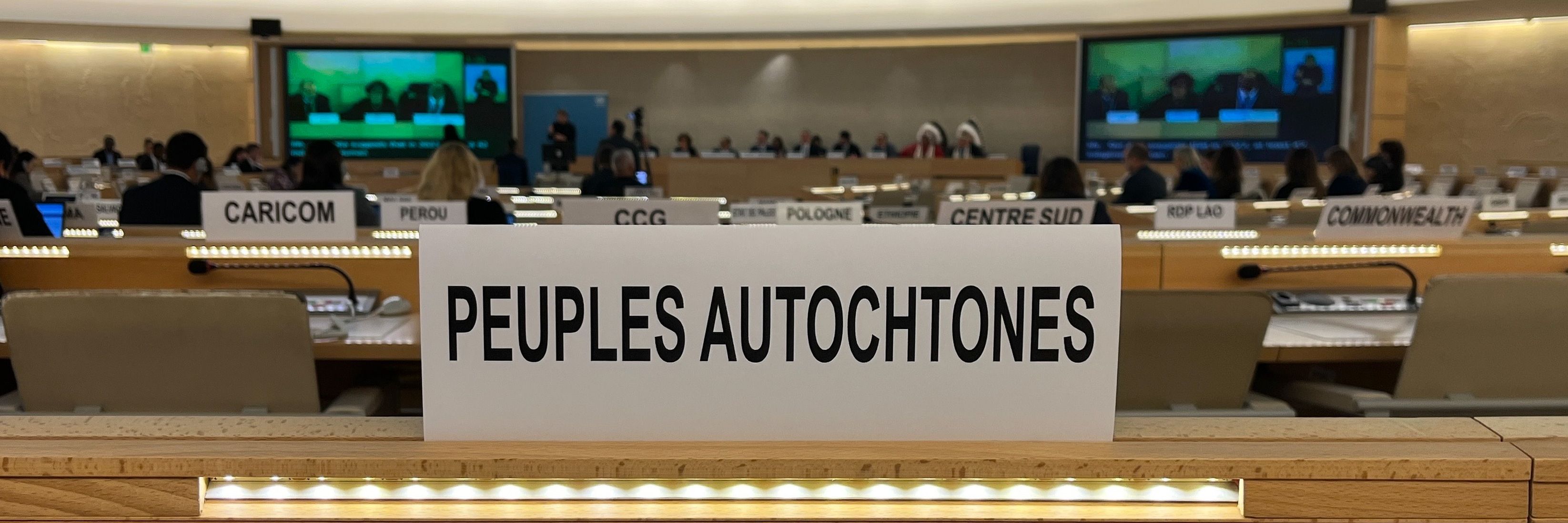
International Affairs Update
NCAI affirms that tribal sovereignty demands equal representation and involvement at all levels of decision-making, including the international arena. In recent years, NCAI has prioritized participating in negotiations at the United Nations (UN) and the Organization of American States, driving important policy conversations that impact Indigenous Peoples. These discussions have spanned critical issues such as climate change, the protection of Indigenous Traditional Knowledge, traditional cultural expressions, and genetic resources, and the importance of Indigenous Peoples' full and effective participation in global forums.
In January, NCAI attended the United Nations Permanent Forum on Indigenous Issues Expert Group Meeting at the University of Colorado Boulder. The meeting brought together UN Permanent Forum Members, Secretariat, experts, tribal leaders, and U.S. Representatives to discuss Indigenous Peoples’ relationships with greening economies. The meeting resulted in a report that was discussed at the UN Permanent Forum on Indigenous Issues’ 2024 session.
In April, NCAI attended the 23rd session of the UN Permanent Forum on Indigenous Issues alongside the Native American Rights Fund (NARF), delivering interventions on environmental justice, intellectual property rights, and the need for an enhanced status for Indigenous Peoples to facilitate their full and effective participation at the UN. This year’s forum saw an unprecedented presence of elected Tribal Nation leaders, with five NCAI Executive Board members in attendance. Five NCAI Youth Commission Officers also participated, forging meaningful connections with indigenous youth worldwide and gaining invaluable experience in global diplomacy and governance.
In May, NARF— on behalf of NCAI’s membership— participated in the World Intellectual Property Organization’s (WIPO) Diplomatic Conference to conclude a treaty on genetic resources and associated traditional knowledge, also taking part in the Indigenous Caucus. The conference culminated in a landmark treaty, WIPO’s first to include Indigenous Peoples and acknowledge their rights, marking a historic achievement.
In June, NARF— once again, on behalf of NCAI’s membership— attended the UN Framework Convention on Climate Change Bonn Intersessional in Bonn, Germany, engaging in the Indigenous Caucus and the Facilitative Working Group of the Local Communities and Indigenous Peoples Platform. Representatives advocated for equitable access to climate finance, the participation of Indigenous Peoples in decision-making, and adherence to standards of due process and free, prior, and informed consent, emphasizing the need to prevent further displacement, dispossession, and violence against Indigenous Peoples in connection with mineral extraction in the transition from the fossil fuel economy to the “green economy.”
In July, NCAI, alongside NARF, participated in the 17th Session of the United Nations Expert Mechanism on the Rights of Indigenous Peoples in Geneva, Switzerland, advocating for the protection of Indigenous Peoples’ traditional knowledge and traditional cultural expressions. NCAI also called for a new status for Indigenous Peoples at the UN that acknowledges the sovereign status of Tribal Nations, ensuring their full and effective participation. Additionally, NCAI and NARF engaged in the WIPO General Assembly, as well as both the July and October UN Human Rights Council (HRC) Intersessionals on enhanced participation for Indigenous Peoples. The July HRC session was historic, marking the first time Indigenous Peoples participated in the HRC as Indigenous Peoples, rather than under the auspices of NGOs with UN Economic and Social Council status. It was also the first time an iIndigenous facilitator led the discussion, further solidifying the role of Indigenous voices at the UN. NCAI received support from the UN Voluntary Fund for this crucial work at the HRC.
Later the same month, NCAI, in collaboration with the Native American Finance Officers Association (NAFOA), took part in the Global Indigenous Business Summit, held in Rotorua, New Zealand. This summit brought together Indigenous Peoples from around the globe, fostering the exchange of ideas and partnerships among Indigenous Peoples worldwide, driving progress in the global indigenous economy. NCAI, alongside NAFOA, was honored to receive the summit "mauri," symbolizing the ceremonial transfer of the event's future location from New Zealand to the United States.
NCAI remains steadfast in its commitment to ensuring that Tribal Nations attain their rightful and just place within the global community of sovereigns. Through its ongoing advocacy for the full implementation of the UN Declaration on the Rights of Indigenous Peoples, NCAI will continue to collaborate with its partners to realize a future in which the rights of Indigenous Peoples are fully recognized, respected, and upheld in all international arenas. In this endeavor, NCAI seeks to uplift the critical importance of indigenous solidarity across borders, acknowledging that the fate of future generations is interconnected and transcends colonial borders.

Land and Natural Resources Update
A powerful exercise of sovereignty is a Tribal Nation’s ability to protect its ancestral homelands and determine the best possible use of its land and resources. Policy outcomes that reinforce and support this ability are fundamental in a time of strengthened and expanding self-determination. NCAI is dedicated to securing the funding necessary for Tribal Nations to grow environmentally sustainable land use initiatives and to oversee the responsible stewardship of their natural resources. This policy work depends upon synergetic work between tribal leadership, their federal and non-federal partners, and, increasingly, a growing global neighborhood as NCAI supports international collaborations to support and advocate for the rights and representation of Indigenous Peoples worldwide.
Over the past year, NCAI has continued its work advocating for policies that improve the quality of land and life for Indigenous Peoples everywhere. It has supported several water rights statutes based on its overarching policy principle that Congress must ensure the accounting, implementation, and protection of reserved water rights. Following last year’s resolution calling for a dedicated Land, Water, and Conservation Fund, NCAI is pleased to host a breakout session at this year’s 81st Annual Convention for The Wilderness Society and the Native American Tribal Historic Preservation Officers’ work towards bringing such legislation to reality.
In the context of its work and advocacy to fight climate change, NCAI remains aware that Indigenous Peoples’ livelihood and legacies cannot be sacrificed to a green energy movement. Lives and history have already been lost in a march towards modern convenience; corporate greed and government interests show no compunction towards exposing tribal families to the fallout of bomb tests, pollution, and poisons. While a move from fossil fuels must occur, it must be approached in a way that uplifts and protects those who have protected this environment the longest, and cannot come at their expense. To that end, NCAI has supported federal regulations that tighten the permitting process for mining ventures, and support inclusion of requirements for environmental and community impact safeguards.
NCAI has also continued its work in partnership with others as part of the Native Farm Bill Coalition. In February, NCAI contingents visited several Congressional offices and the United States Department of Agriculture in support of expanding self-governance programming to nutrition services, agricultural activities, and forest management. Since that meeting, most of Indian Country has seen first-hand the genuine need for self-governance of its food networks, with the collapse of food deliveries supported by the USDA’s Food Distribution on Indian Reservation Program (FDIRP). Following the success of tribally-led pilot projects that tested self-governance programs and the 2024 USDA FDIRP crisis, it is more urgent than ever that tribes exercise additional discretion and direction over the programs that feed and nourish their children and their elders.
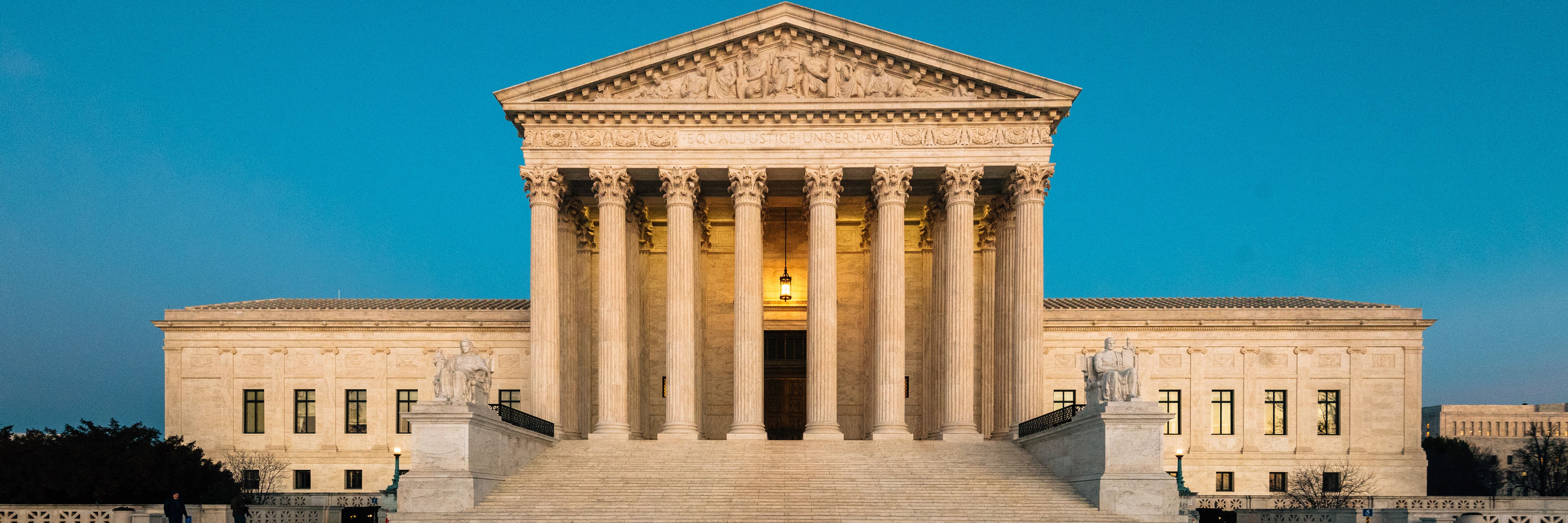
Legal and Governance Update
NCAI continually monitors legislation and litigation that impacts the interests of Indian Country. Over the years, NCAI has provided support to many amicus efforts that have effectuated real, demonstrable progress. NCAI and all of its partners celebrated the hard work rewarded by the Supreme Court decision in Becerra v. San Carlos Apache Tribe, a 5-4 decision ruling that the Indian Self Determination Act requires the Indian Health Service to pay or reimburse Tribal Nations for the costs of collecting and spending program income from third-party sources (i.e., payments from insurance companies).
In Alario, et. al., v. Knudsen, NCAI joined the Native American Rights Fund (NARF) in protest of Montana’s attempt to circumvent the right of tribal governments to regulate their own digital jurisdictions. The State of Montana proposed and adopted SB 419, a law that prohibited the use of the social media app TikTok within its territorial jurisdiction. Although, in concept, Montana law does not reach into the territorial jurisdiction of tribal governments within its outer boundaries, the reality of enforcing access to digital media meant that users on Indian reservations would likely not be able to access TikTok or other applications banned by state law.
NCAI is also closely watching the Supreme Court’s decision on a petition for certiorari filed in September by Apache Stronghold, a group of interested tribal governments and organizations. As plaintiffs, they are seeking to protect Chi’chil Bildagoteel, a sacred site where the Apache and their ancestors have prayed and been in ceremony since time immemorial. The site was previously protected by the United States but, in 2014, transferred to Resolution Copper for the construction of a mine. The Ninth District Court repeatedly acknowledged that the action would not just impede but permanently end and prevent continued use of the land as the sacred site it has been for centuries. NCAI joined NARF in an amicus brief and supports Apache Stronghld’s petition for a writ of certiorari to the Supreme Court of the United States.
The federal law landscape continues to shift and present new challenges for the advocates of Indian Country. In June, the Supreme Court released its opinion in Loper Bright Enterprises, et. al., v. Raimondo, reversing 40 years of precedent by overruling Chevron U.S.A., Inc., v. Natural Resources Defense Council, Inc. For decades since the Chevron decision, administrative law has been shaped by federal courts’ deference to administrative interpretations of applicable statutes. If someone challenged an administrative agency’s decision, a court followed the two-step test imposed by Chevron: first, examine the applicable enabling statute to see if the administrative decision was in conflict with express Congressional intent. If the statute was silent or ambiguous, a court then moved to the second step of the test, looking to see if the agency’s decision was based on a “reasonable” construction of the statute, with “considerable” deference given to the administrative rationale.
This degree of deference to administrative subject matter experts has served Indian Country when its interests align with supervising agencies. In Citizens Exposing Truth About Casinos v. Kempthorne, 492 F.3d 460 (2007), the federal court accorded great deference to the Secretary of the Interior’s decision to take a parcel into trust for the Nottawaseppi Huron Band of the Potawatomi as “initial reservation” land, thus opening the parcel for gaming opportunities under the Indian Gaming Regulatory Act. However, when tribal and federal interests do not align, the Chevron deference has historically been balanced by the overarching principle of statutory construction in this field— ambiguous statutes must be interpreted in favor of tribal interests. The balance between these two principles was analyzed most recently in Scotts Valley Band of Pomo Indians v. U.S. Dept. of Interior, 633 F. Supp. 3d 132 (2022), a decision that seemed only to pave the way for a more definitive answer from the Supreme Court.
With Chevron’s demise, Tribal Nations must be mindful that more opponents to their interests may challenge agency decisions, since the agencies can no longer be sure of deference from the courts. They must stand ready to lend their defense and argue that agency decisions– much like treaties and acts of Congress– must have ambiguities resolved in their favor based on the unique trust responsibilities of all federal agencies. They must also remain vigilant in challenging adverse agency decisions on the same principle. With or without Chevron, there is unlikely to be much respite for Indian Country.
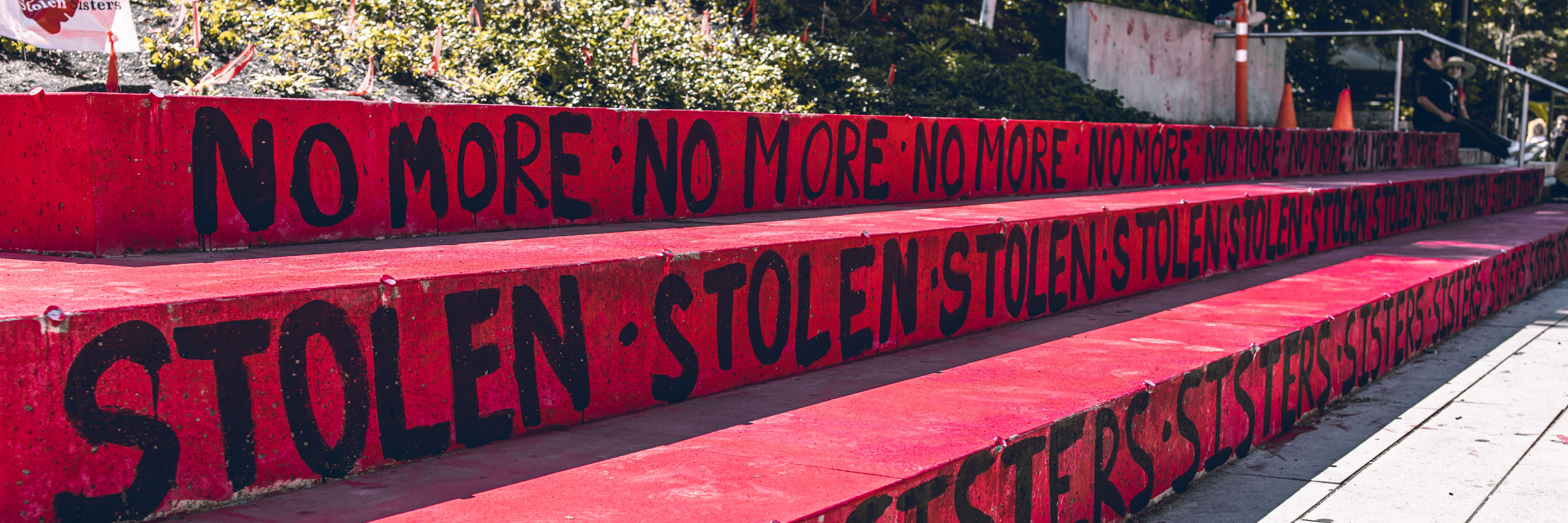
Public Safety & Justice Update
The foundation of sovereignty is the authority and ability to protect one’s own people, and the people who reside on one’s lands. To ensure that Tribal Nations can safeguard against criminal activity, natural disasters, and national security threats, tribal jurisdiction must be restored, and Indian Country’s first responders must have the resources needed to keep tribal communities safe and secure for everyone. NCAI, along with tribal leaders and partners, have continued to advocate for critical changes to advance these priorities within federal policy.
In February, at the 2024 State of Indian Nations Address, NCAI President Mark Macarro named public safety and justice as one of his key policy priorities and highlighted the need for both respect for tribal sovereignty and increased federal funding. President Macarro called for a Public Safety & Justice Summit, which NCAI plans to host in the first half of 2025. More details are forthcoming.
On May 1, 2024, NCAI submitted testimony to the Senate Committee on Indian Affairs in favor of S. 465 BADGES for Native Communities Act and S. 2695 Parity for Tribal Law Enforcement Act. This legislation would help address the crisis of Missing and Murdered Indigenous People by improving data collection and dissemination. It would appoint a tribal facilitator to coordinate missing and unidentified persons cases with Tribal Nations, and provide training and technical assistance. Until the National Missing and Unidentified Persons System adequately accounts for American Indian and Alaska Native individuals affected by the crisis, we will never know the scope of the problem or how to fix it.
Senate Bill 2695 The Parity for Tribal Law Enforcement Act offers an opportunity to help fill a portion of the law enforcement gap in tribal communities. If passed, the law would impact Tribal Nations that have contracts or compacts pursuant to the Indian Self-Determination and Education Assistance Act allowing for tribal control of any or all law enforcement functions. For Tribal Nations with such contracts or compacts, tribal police— who meet certain qualifications— would be able to enforce federal law within the Tribal Nation’s jurisdiction. Such a possibility has the potential to significantly impact the effectiveness of law enforcement and the safety of our communities. NCAI continues to monitor both bills and watch for opportunities to advocate for additional funding to secure tribal schools and support tribes’ ability to hire and retain conservation law enforcement officers.
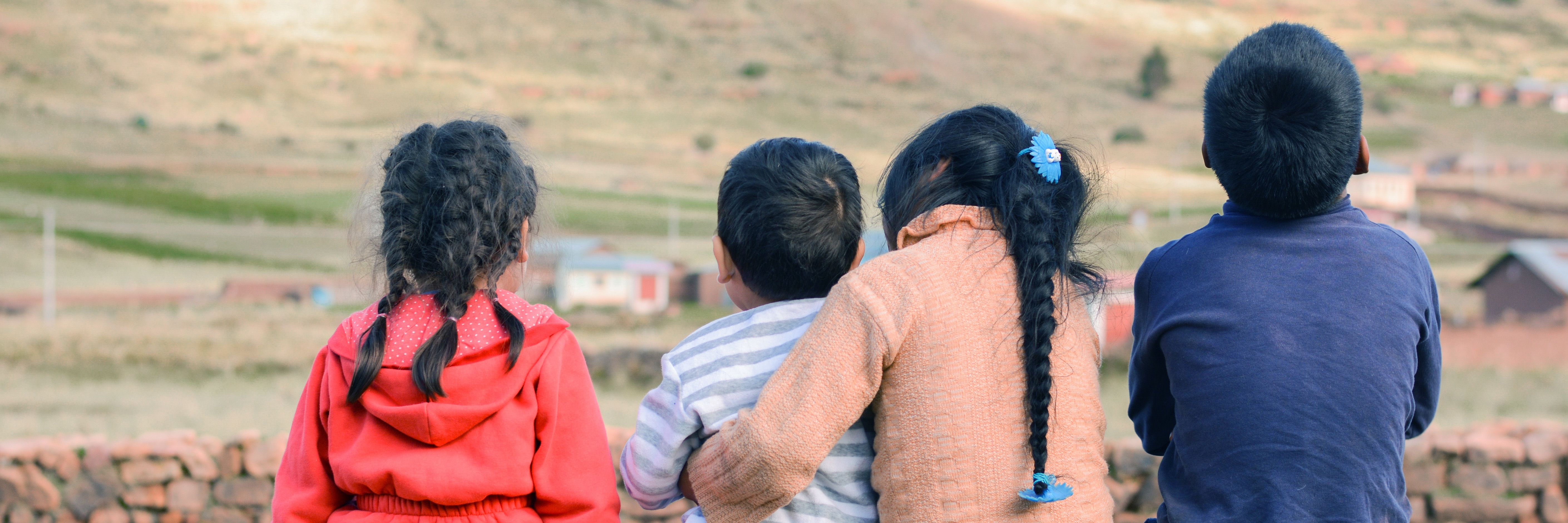
Social & Cultural Resources Update
The social and cultural resources portfolio is integral to NCAI’s mission to protect tribal sovereignty. It specifically focuses on policy areas that impact our tribal people and traditions, including education, health, cultural patrimony, religious protections, and Native languages.
Indian Country achieved a significant victory with the Becerra v. San Carlos Apache Tribe case, which ruled that Tribal Nations who enter into self-determination contracts with the Indian Health Service (IHS) under the Indian Self-Determination and Education Assistance Act are entitled to contract support costs not just for IHS-funded activities, but also to support expenditures from income collected through third-party sources, such as private insurance. This ruling will allow Tribal Nations to exercise sovereignty and self-determination by achieving parity and financial sustainability for tribal healthcare programs. NCAI continues to advocate for the reclassification of contract support costs as mandatory funding for appropriation bills, rather than discretionary funding.
In accordance with NCAI Resolution NC-24-005, Protecting the Indian Child Welfare Act for Future Generations, NCAI worked with the National Indian Child Welfare Association (NICWA) to “finalize a long-term, strategic plan to Strengthen [the Indian Child Welfare Act] ICWA implementation and compliance, ensuring tribal input in the plan from all regions of Indian Country.” A draft of the framework was created in August and distributed by NICWA to partners for review and support. The final strategic plan is set to launch by the end of 2024, with NCAI supports.
Additionally, NCAI supported the National Indian Child Welfare, submitting comments in early 2024 supporting the ability of Tribal Nations to effectively serve Native families navigating the Adoption and Foster Care Analysis and Reporting SystemNPRM.

Education Update
An educated citizenry serves as a catalyst to boost prosperity and growth through a more competitive workforce, which can attract new businesses, stimulate tribal economies, and foster entrepreneurial endeavors in the community. Tribal education is uniquely reliant on the federal appropriations process because disparities in tax jurisdictions limit tribal governments’ ability to raise revenue in ways other governments take for granted. A growing body of research finds important positive connections between the linguistic and cultural environments in which Native American children grow and their outcomes.
According to the National Indian Education Association (NIEA), “Rooted in treaties between Tribal Nations and the federal government, the US Constitution, and decades of legal precedent, Congress has a direct fiduciary responsibility to provide federal funding that supports Native students,” a sentiment which NCAI fully supports. NCAI partners with NIEA to advocate for the necessary funding that enables Native students to thrive. We remain committed to ensuring that Title programming in Local Education Agencies, including Title I, Title VI, and Impact Aid, receives full funding. This spring, NCAI collaborated with NIEA to highlight the resource and support challenges faced by the National Advisory Council on Indian Education (NACIE). Through these joint efforts, significant legislation is being proposed: H.R. 7234/S.749, the NACIE Improvement Act. This legislation would mandate that the Secretaries of Education and the Interior consider NACIE’s annual report when preparing yearly budgets and ensure that at least one NACIE member is the president of a Tribal College or University.
The U.S. Department of Education plays a crucial role in supporting the success of Native students across public schools, Bureau of Indian Education-funded institutions, and Tribal Colleges and Universities. In September 2023, NCAI endorsed the proposed HR 5669, championed by Representative Vasquez and supported by Representatives Johnson, Cole, and Golden, which advocates for Teacher Parity Pay for Tribally Controlled Schools. Additionally, NCAI and NIEA collaborated on a tribal caucus in late 2023 to prepare for the White House Council on Native American Affairs’s tribal consultations, providing a vital platform for tribal leaders and stakeholders to amplify their voices. This partnership sets the stage for NCAI’s work in 2024, particularly in advancing initiatives such as the Native Language Community Work Group’s survey on language vitality and the upcoming White House consultations on the National Plan for Native Language Revitalization. Together, these efforts aim to ensure that the rights and needs of Native students and communities are effectively addressed and prioritized
Conclusion
The voice of Indian Country is most powerful when united, and NCAI is dedicated to amplifying the collective positions of Tribal Nations. NCAI deeply values its relationships with Tribal Nations, tribal leaders, and partner organizations, and as we advocate for the rights and interests of Indian Country, we look forward to continuing our fight to defend tribal sovereignty and strengthen our tribal communities.
